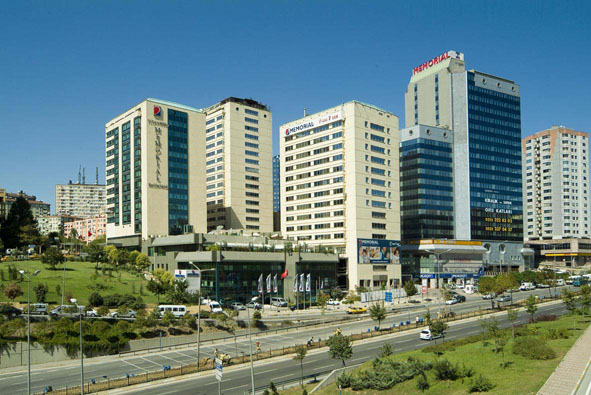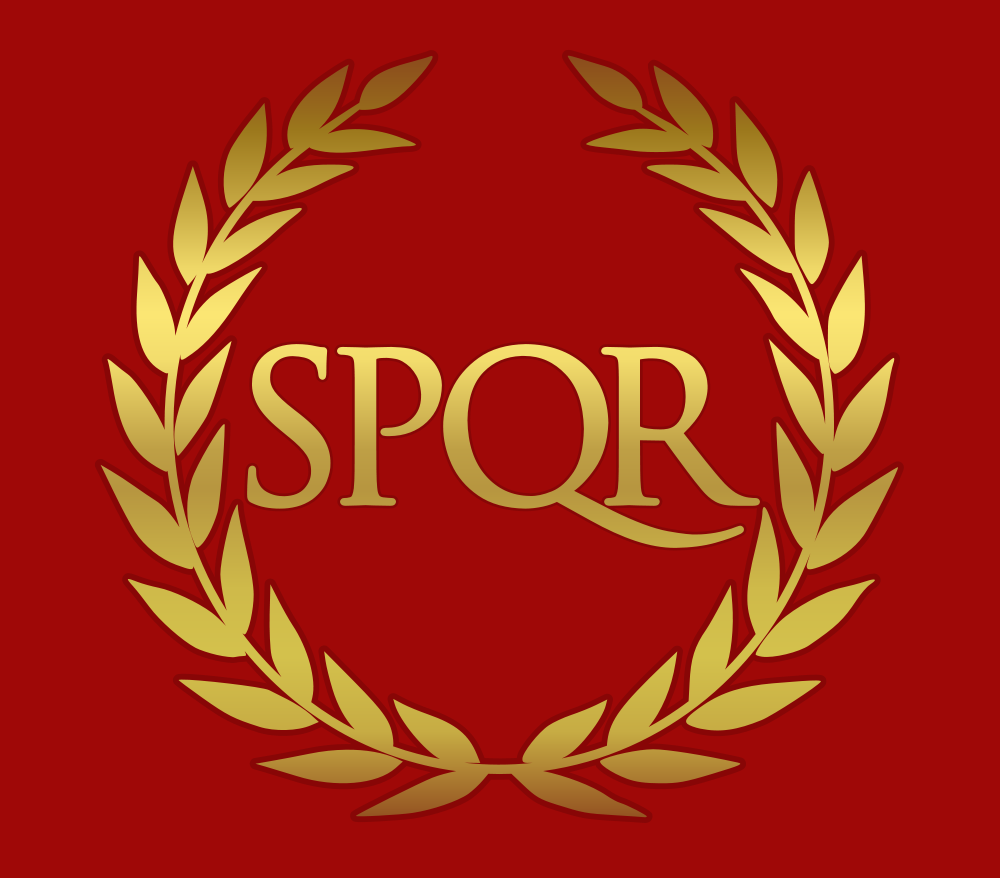|
Okmeydanı
Okmeydanı ( tr, Okmeydanı, literally "arrow field") is a neighbourhood connected to Kağıthane and Şişli boroughs of Istanbul, Turkey. It was named after the archery area and archery lodge built by Sultan Mehmed II of the Ottoman Empire. Streets nearby have targeting stones to define the distances of the arrows. During the plague outbreak of 1597, people met in Okmeydanı for three weeks of communal prayers for deliverance from the disease by order of Sultan Mehmed III. The most land titles of this neighbourhood are mostly owned by Fatih Sultan Mehmet Foundation, thus the buildings in the area were subject to deconstruction now and then. Currently, it consists of many important commercial and state buildings and is an important crossroad for the local transportation Transport (in British English), or transportation (in American English), is the intentional movement of humans, animals, and goods from one location to another. Modes of transport include air, land (rail a ... [...More Info...] [...Related Items...] OR: [Wikipedia] [Google] [Baidu] |
Şişli
Şişli () is one of the 39 districts of Istanbul, Turkey. Located on the European side of the city, it is bordered by Beşiktaş to the east, Sarıyer to the north, Eyüp and Kağıthane to the west, and Beyoğlu to the south. In 2009, Şişli had a population of 316,058. History Until the 1800s, Şişli was open countryside, used for hunting, agriculture and leisure. It was developed as a middle class residential district during the last years of the Ottoman Empire and the early years of the Turkish Republic (the late 19th-early 20th centuries). French culture was an important influence in this period and the wide avenues of Şişli were lined with large stone buildings with high ceilings and art nouveau wrought-iron balconies, and which often had little elevators on wires in the middle of the stairways. This trading middle-class was composed of Jews, Greeks and Armenians, as well as some Turks, many of whom built homes in Şişli after a large fire devastated the neighb ... [...More Info...] [...Related Items...] OR: [Wikipedia] [Google] [Baidu] |
Istanbul Memorial Hastanesi
) , postal_code_type = Postal code , postal_code = 34000 to 34990 , area_code = +90 212 (European side) +90 216 (Asian side) , registration_plate = 34 , blank_name_sec2 = GeoTLD , blank_info_sec2 = .ist, .istanbul , website = , blank_name = GDP (Nominal) , blank_info = 2021 , blank1_name = - Total , blank1_info = US$ 248 billion , blank2_name = - Per capita , blank2_info = US$ 15,666 , blank3_name = HDI (2019) , blank3_info = 0.846 () · 1st , timezone = TRT , utc_offset = +3 , module = , name = , government_type = Mayor–council government , governing_body = Municipal Council of Istanbul , image_shield = , established_date = 11 May 330 AD , image_ma ... [...More Info...] [...Related Items...] OR: [Wikipedia] [Google] [Baidu] |
Istanbul
Istanbul ( , ; tr, İstanbul ), formerly known as Constantinople ( grc-gre, Κωνσταντινούπολις; la, Constantinopolis), is the List of largest cities and towns in Turkey, largest city in Turkey, serving as the country's economic, cultural and historic hub. The city straddles the Bosporus strait, lying in both Europe and Asia, and has a population of over 15 million residents, comprising 19% of the population of Turkey. Istanbul is the list of European cities by population within city limits, most populous European city, and the world's List of largest cities, 15th-largest city. The city was founded as Byzantium ( grc-gre, Βυζάντιον, ) in the 7th century BCE by Ancient Greece, Greek settlers from Megara. In 330 CE, the Roman emperor Constantine the Great made it his imperial capital, renaming it first as New Rome ( grc-gre, Νέα Ῥώμη, ; la, Nova Roma) and then as Constantinople () after himself. The city grew in size and influence, eventually becom ... [...More Info...] [...Related Items...] OR: [Wikipedia] [Google] [Baidu] |
Turkey
Turkey ( tr, Türkiye ), officially the Republic of Türkiye ( tr, Türkiye Cumhuriyeti, links=no ), is a list of transcontinental countries, transcontinental country located mainly on the Anatolia, Anatolian Peninsula in Western Asia, with a East Thrace, small portion on the Balkans, Balkan Peninsula in Southeast Europe. It shares borders with the Black Sea to the north; Georgia (country), Georgia to the northeast; Armenia, Azerbaijan, and Iran to the east; Iraq to the southeast; Syria and the Mediterranean Sea to the south; the Aegean Sea to the west; and Greece and Bulgaria to the northwest. Cyprus is located off the south coast. Turkish people, Turks form the vast majority of the nation's population and Kurds are the largest minority. Ankara is Turkey's capital, while Istanbul is its list of largest cities and towns in Turkey, largest city and financial centre. One of the world's earliest permanently Settler, settled regions, present-day Turkey was home to important Neol ... [...More Info...] [...Related Items...] OR: [Wikipedia] [Google] [Baidu] |
Mehmed II
Mehmed II ( ota, محمد ثانى, translit=Meḥmed-i s̱ānī; tr, II. Mehmed, ; 30 March 14323 May 1481), commonly known as Mehmed the Conqueror ( ota, ابو الفتح, Ebū'l-fetḥ, lit=the Father of Conquest, links=no; tr, Fâtih Sultan Mehmed, links=no), was an Ottoman sultan who ruled from August 1444 to September 1446, and then later from February 1451 to May 1481. In Mehmed II's first reign, he defeated the crusade led by John Hunyadi after the Hungarian incursions into his country broke the conditions of the truce Peace of Szeged. When Mehmed II ascended the throne again in 1451, he strengthened the Ottoman navy and made preparations to attack Constantinople. At the age of 21, he Fall of Constantinople, conquered Constantinople (modern-day Istanbul) and brought an end to the Byzantine Empire. After the conquest Mehmed claimed the title Caesar (title), Caesar of the Roman Empire ( ota, قیصر روم, Qayser-i Rûm, links=no), based on the fact that Constanti ... [...More Info...] [...Related Items...] OR: [Wikipedia] [Google] [Baidu] |
Ottoman Empire
The Ottoman Empire, * ; is an archaic version. The definite article forms and were synonymous * and el, Оθωμανική Αυτοκρατορία, Othōmanikē Avtokratoria, label=none * info page on book at Martin Luther University) // CITED: p. 36 (PDF p. 38/338) also known as the Turkish Empire, was an empire that controlled much of Southeast Europe, Western Asia, and Northern Africa between the 14th and early 20th centuries. It was founded at the end of the 13th century in northwestern Anatolia in the town of Söğüt (modern-day Bilecik Province) by the Turkoman tribal leader Osman I. After 1354, the Ottomans crossed into Europe and, with the conquest of the Balkans, the Ottoman beylik was transformed into a transcontinental empire. The Ottomans ended the Byzantine Empire with the conquest of Constantinople in 1453 by Mehmed the Conqueror. Under the reign of Suleiman the Magnificent, the Ottoman Empire marked the peak of its power and prosperity, as well a ... [...More Info...] [...Related Items...] OR: [Wikipedia] [Google] [Baidu] |
Plague (disease)
Plague is an infectious disease caused by the bacterium ''Yersinia pestis''. Symptoms include fever, weakness and headache. Usually this begins one to seven days after exposure. There are three forms of plague, each affecting a different part of the body and causing associated symptoms. Pneumonic plague infects the lungs, causing shortness of breath, coughing and chest pain; bubonic plague affects the lymph nodes, making them swell; and septicemic plague infects the blood and can cause tissues to turn black and die. The bubonic and septicemic forms are generally spread by flea bites or handling an infected animal, whereas pneumonic plague is generally spread between people through the air via infectious droplets. Diagnosis is typically by finding the bacterium in fluid from a lymph node, blood or sputum. Those at high risk may be vaccinated. Those exposed to a case of pneumonic plague may be treated with preventive medication. If infected, treatment is with antibiotic ... [...More Info...] [...Related Items...] OR: [Wikipedia] [Google] [Baidu] |
Mehmed III
Mehmed III (, ''Meḥmed-i sālis''; tr, III. Mehmed; 26 May 1566 – 22 December 1603) was Sultan of the Ottoman Empire from 1595 until his death in 1603. Mehmed was known for ordering the execution of his brothers and leading the army in the Long Turkish war, during which the Ottoman army was victorious at the decisive Battle of Keresztes. This victory was however undermined by some military losses such as in Gyor and Nikopol. He also ordered the successful quelling of the Jeleli rebellions. The sultan also communicated with the court of Elizabeth I on the grounds of stronger commercial relations and in the hopes of England to ally with the Ottomans against the Spanish. Early life Mehmed was born at the Manisa Palace in 1566, during the reign of his great-grandfather, Suleiman the Magnificent. He was the son of Murad III, himself the son of Selim II, who was the son of Sultan Suleiman and Hurrem Sultan. His mother was Safiye Sultan, an Albanian from the Dukagjin highla ... [...More Info...] [...Related Items...] OR: [Wikipedia] [Google] [Baidu] |
Transportation
Transport (in British English), or transportation (in American English), is the intentional movement of humans, animals, and goods from one location to another. Modes of transport include air, land (rail and road), water, cable, pipeline, and space. The field can be divided into infrastructure, vehicles, and operations. Transport enables human trade, which is essential for the development of civilizations. Transport infrastructure consists of both fixed installations, including roads, railways, airways, waterways, canals, and pipelines, and terminals such as airports, railway stations, bus stations, warehouses, trucking terminals, refueling depots (including fueling docks and fuel stations), and seaports. Terminals may be used both for interchange of passengers and cargo and for maintenance. Means of transport are any of the different kinds of transport facilities used to carry people or cargo. They may include vehicles, riding animals, and pack animals. Vehicl ... [...More Info...] [...Related Items...] OR: [Wikipedia] [Google] [Baidu] |
Charles Scribner's Sons
Charles Scribner's Sons, or simply Scribner's or Scribner, is an American publisher based in New York City, known for publishing American authors including Henry James, Ernest Hemingway, F. Scott Fitzgerald, Kurt Vonnegut, Marjorie Kinnan Rawlings, Stephen King, Robert A. Heinlein, Thomas Wolfe, George Santayana, John Clellon Holmes, Don DeLillo, and Edith Wharton. The firm published ''Scribner's Magazine'' for many years. More recently, several Scribner titles and authors have garnered Pulitzer Prizes, National Book Awards and other merits. In 1978 the company merged with Atheneum and became The Scribner Book Companies. In turn it merged into Macmillan in 1984. Simon & Schuster bought Macmillan in 1994. By this point only the trade book and reference book operations still bore the original family name. After the merger, the Macmillan and Atheneum adult lists were merged into Scribner's and the Scribner's children list was merged into Atheneum. The former imprint, now simpl ... [...More Info...] [...Related Items...] OR: [Wikipedia] [Google] [Baidu] |






